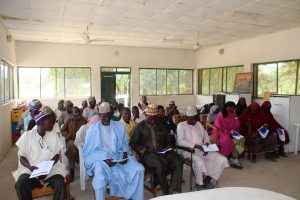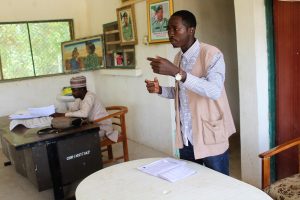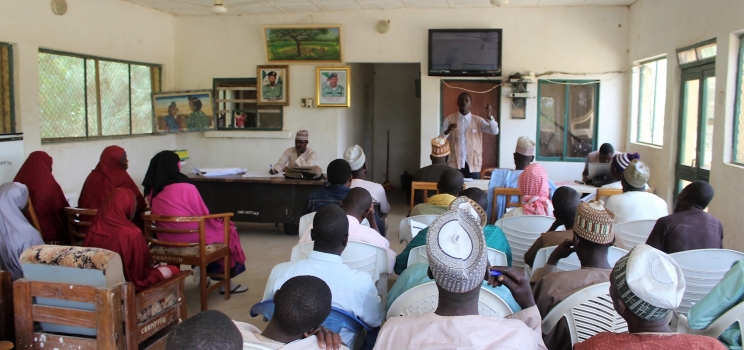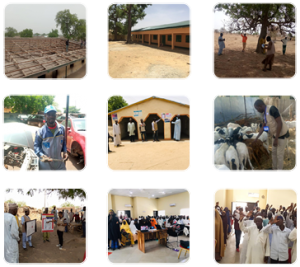The Centre for Community Development and Research Network (CCDRN) has provided training for selected community members who are to serve as Project management Committee members for the WFP 2019 Livelihood activities in Bade LGA, Yobe state.
The training which was conducted in Dagona, a ward in Bade LGA was aimed at to orientate the committee members on their roles and responsibilities in the implementation process of the WFP

PMC members seated during training session in Dagona. Photo: James/CCDRN
2019 livelihood project in their respective communities.
In a bid to promote sense of ownership towards achieving success in the implementation and sustainability of the project, Center for Community Development and Research Network (CCDRN) is ensuring that host community members and beneficiaries take the driver’s seat in the implementation process of the livelihood project across 14 targeted communities in Bade Local Government Area (LGA), thereby, establishing the Project Management Committee (PMCs) in all the targeted communities of the livelihood project.
“This training is very important as it provides us with the opportunity to understand our roles and responsibilities even as we also participate in the project” say Isa Usman, a participant from Azam Kura community.
The committee is expected to participate in day-day monitoring and management of the livelihood project while contributing to their own resilience building efforts and development. Training for the first batch of the PMCs covering 9 communities (Abujan Amare, Bayan Government Day, Garin Lamido, Kangalafaye, Korama, Lawan Musa Central, Madina Dadin Kowa, Tudun Nassarawa and Unguwan Mallam Yakubu) was conducted on 20th and 21st February.
However, the second batch of the PMC training for the remaining 5 communities (Azbak, Azamkura,

CCDRN State Program Manager facilitating a session during the PMC training. Photo: James
Bizi, Dagona and Dala), was conducted on 4th March 2019 in Dagona with 32 participants in attendance.
The training touched on issues around building Partnerships and collaborations within the communities, Group Dynamics, Conflict prevention and resolution, Gender inclusiveness and sensitivity in livelihood program implementation, Safety, security and protection in communal activities implementation.
Equally, themes such as humanitarian principles, Livelihood Work norms and ethics, Community stakeholder Analysis and leveraging for support, as well as resource Mobilization for effective activity implementation were also highlighted.

